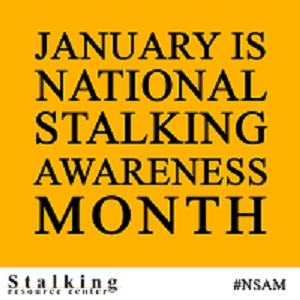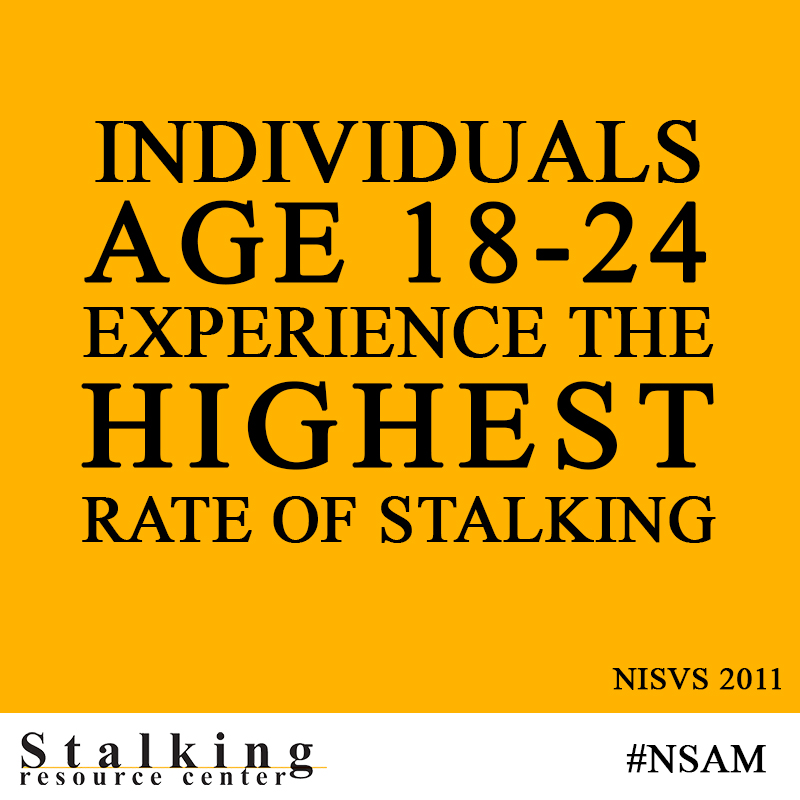
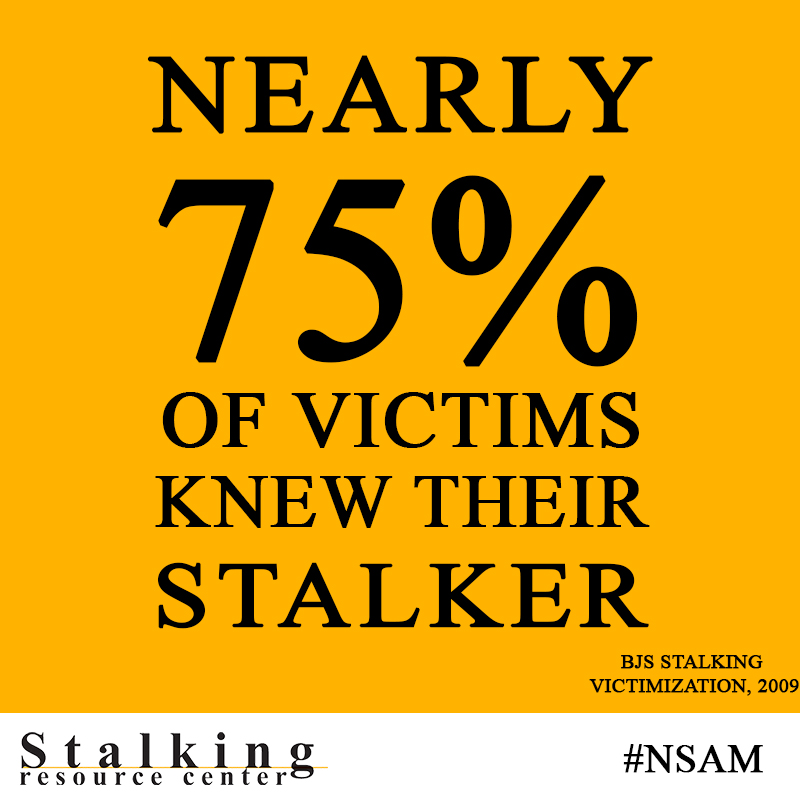
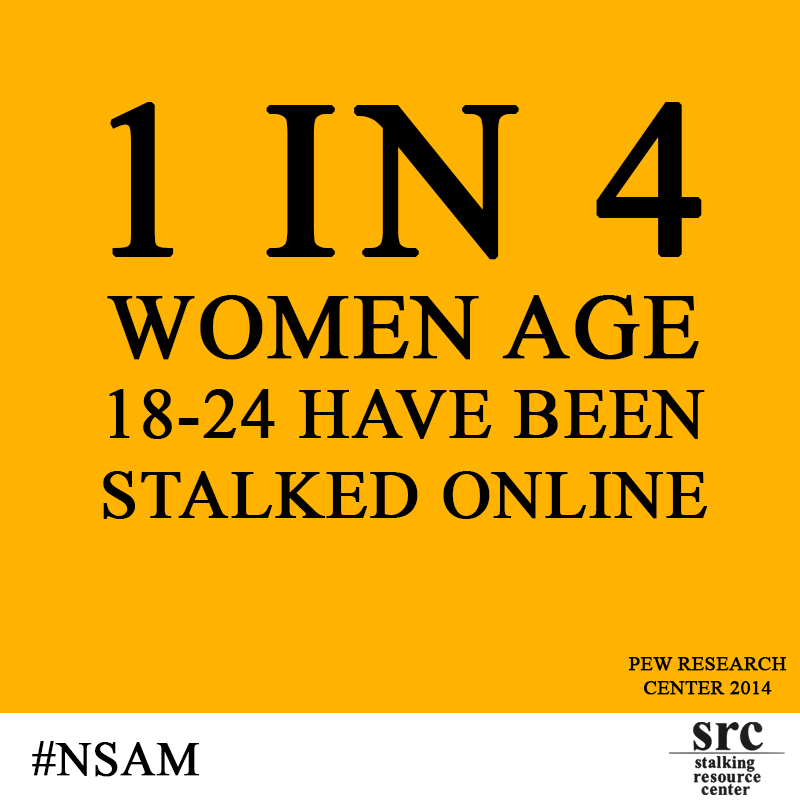
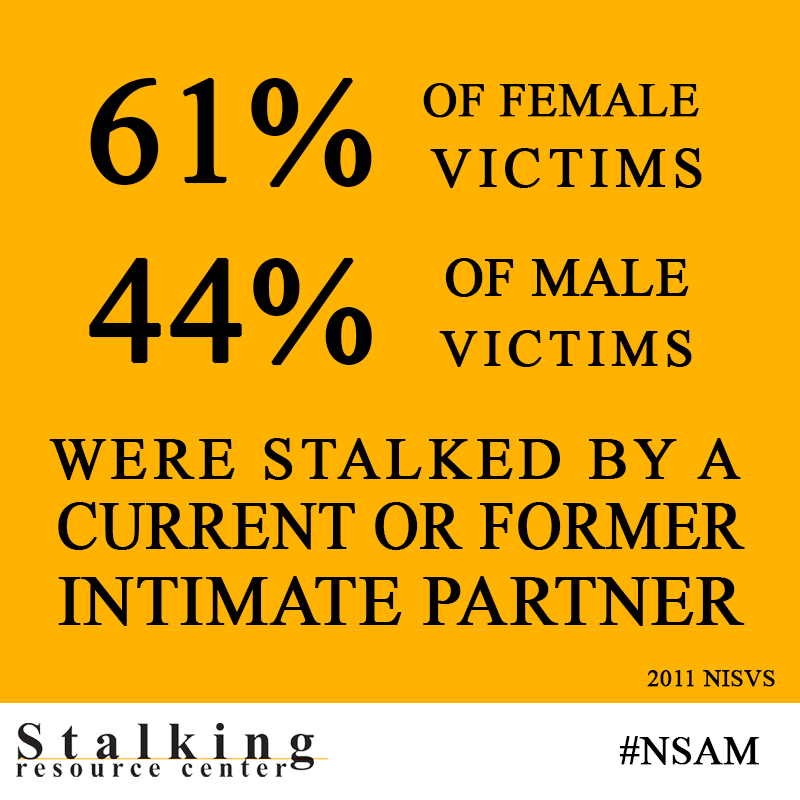
January is National Stalking Awareness Month, a time to focus on a crime that affected 7.5 million victims in one year.1 The theme - “Stalking: Know It. Name It. Stop It.” - challenges the nation to fight this obscured and alarming crime by learning more about it.
Stalking is a crime in all 50 states, the U.S. Territories and the District of Columbia, yet many victims and criminal justice professionals underestimate its seriousness and impact. In one of five cases, stalkers use weapons to harm or threaten victims,2 and stalking is one of the significant risk factors for femicide (homicide of women) in abusive relationships.3Victims suffer anxiety, social dysfunction, and severe depression at much higher rates than the general population, and many lose time from work or have to move as a result of their victimization.4
Stalking is difficult to recognize, investigate, and prosecute. Unlike other crimes, stalking is not a single, easily identifiable crime but a series of acts, a course of conduct directed at a specific person inducing fear. Stalking may take many forms, such as assaults, threats, vandalism, burglary, or animal abuse, as well as unwanted cards, calls, gifts, or visits. One in four victims reports that the stalker uses technology, such as computers, global positioning system devices, or hidden cameras, to track the victim’s daily activities.5 Cyberstalking is a term that refers to the misuse of the Internet or other technology to stalk and harass someone. A stalker may contact the victim by email, social media sites, a messaging app, or through online spaces/websites. The person may also post messages about the victim, or share personal information and pictures online with the intention of harassment and intimidation.
Stalkers fit no standard psychological profile, and many stalkers follow their victims from one jurisdiction to another, making it difficult for authorities to investigate and prosecute their crimes. Communities that understand stalking, however, can support victims and combat the crime. It is essential to promote awareness and public education about stalking during the annual observance.
For more information or prevention tips, please contact Project Sanctuary: Ukiah - (707) 462-9196/ Fort Bragg (707) 961-1507/ Point Arena (707) 882-3457/ Laytonville (707) 984-6131 ext.144.
For additional resources to help promote National Stalking Awareness Month please visit: http://stalkingawarenessmonth.org and www.ovw.usdoj.gov.
1 Matthew J. Breiding et al., “Prevalence and Characteristics of Sexual Violence, Stalking, and Intimate Partner Violence Victimization – National Intimate Partner and Sexual Violence Survey, United States, 2011”, Centers for Disease Control and Prevention Morbidity and Mortality Weekly Report, Vol. 63, No. 8 (2014): 7.
2 Katrina Baum et al., “Stalking Victimization in the United States,” (Washington, DC: Bureau of Justice Statistics, 2009).
3 Jacquelyn C. Campbell et al., “Risk Factors for Femicide in Abusive Relationships: Results from a Multi-site Case Control Study,” American Journal of Public Health 93 (2003): 7.
4 Ibid.
5 Baum, Stalking Victimization in the United States.
###
Project Sanctuary, Inc. is a private, not-for-profit organization with the mission to prevent domestic violence and sexual assault in Mendocino County through advocacy, crisis response, community collaboration, education, and shelter. Lia Holbrook is the Coast Services Director at Project Sanctuary in Fort Bragg.
